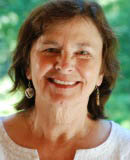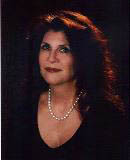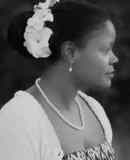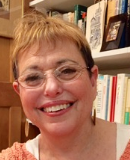Diane Pomerantz
Meet The Pitch Week VI Finalists
Leslie Askwith, Charles Cobb
 Leslie Askwith is a sixth generation Vermonter descended from Benjamin and Azubah Cobb, who settled in Woodstock when Vermont was becoming a state. While researching her ancestry, she came upon journals written by another of their descendants, Charles Morris Cobb. Charles grew up in hills less than a mile from those she roamed as a child on her grandfather’s Woodstock farm. His journals describe a rare and wonderful story of mid-19th century hill farm life, a treasury of rural Vermont folklore. Leslie was charmed by the unique forgotten expressions and evocative words and intrigued by the often painfully frank descriptions of his thoughts and feelings, and used them to create a page-turner historical novel of New England’s rural roots.
Leslie Askwith is a sixth generation Vermonter descended from Benjamin and Azubah Cobb, who settled in Woodstock when Vermont was becoming a state. While researching her ancestry, she came upon journals written by another of their descendants, Charles Morris Cobb. Charles grew up in hills less than a mile from those she roamed as a child on her grandfather’s Woodstock farm. His journals describe a rare and wonderful story of mid-19th century hill farm life, a treasury of rural Vermont folklore. Leslie was charmed by the unique forgotten expressions and evocative words and intrigued by the often painfully frank descriptions of his thoughts and feelings, and used them to create a page-turner historical novel of New England’s rural roots.
Diane Pomerantz, Lost in the Reflecting Pool
What Diane Pomerantz wanted for herself, she pursued and accomplished with determination. She dreamed of becoming psychologist and she became one, earning her Ph.D. in Clinical Psychology. She dreamed of having a family; a marriage, children, dogs; even having a small cottage close to where she lived so her practice would be near to home as her children grew. She got all of these; some at least for a while. She didn’t plan on cancer, nor bankruptcy, betrayal, and divorce but she got those also. Lost in the Reflecting Pool is a compelling human story of resilience and triumph in the face of multiple emotional and physical traumas. It is a psychological tale of ignoring the truths that we all hold within ourselves but keep hidden by the blinders we wear. Diane Pomerantz can tell the story, not only because of her training as a psychologist, but because of her being human and having been there herself.
James Hornor, Victoria Falls
 James Hornor is an educator, writer, and speaker who lives with his wife and two children in Brunswick, Maine. Following his own background, his character James Monroe is on mission in both Zimbabwe and Kenya as a World Bank consultant. Despite his worldliness, James Monroe’s actions betray a late Twentieth Century innocent abroad who embodies both the bravado and the debilitating insecurities of the modern American male. In its exploration of American male stereotypes and in its suggestion of vulnerability as a key to masculine authenticity, Victoria Falls dares to embrace those humane qualities of love, kindness, and creativity that have of late been extolled as the provenance of soul-searching women but have been largely ignored in American fiction about men.
James Hornor is an educator, writer, and speaker who lives with his wife and two children in Brunswick, Maine. Following his own background, his character James Monroe is on mission in both Zimbabwe and Kenya as a World Bank consultant. Despite his worldliness, James Monroe’s actions betray a late Twentieth Century innocent abroad who embodies both the bravado and the debilitating insecurities of the modern American male. In its exploration of American male stereotypes and in its suggestion of vulnerability as a key to masculine authenticity, Victoria Falls dares to embrace those humane qualities of love, kindness, and creativity that have of late been extolled as the provenance of soul-searching women but have been largely ignored in American fiction about men.
Alexis Peters, Untouchable
 A fan of patterned socks, funny t-shirts, and general nerdiness, Alexis Peters is a positive realist who takes pleasure in life’s little “adventures.” Her philosophy: stuff happens, may as well laugh about it. You’ll hear it when she does (even and especially when it isn’t appropriate). In Untouchable, Liz Nolan’s dormant DNA has taken over, and she has begun a metamorphosis that will ultimately transform her into an Anun, a human sub-species with otherworldly abilities. Liz can read minds, move objects, even fly. Well, she would be able to, if she weren’t completely terrified of floating off into space. As if she didn’t have enough to worry about, she also finds out that her species can fall in love at first touch.
A fan of patterned socks, funny t-shirts, and general nerdiness, Alexis Peters is a positive realist who takes pleasure in life’s little “adventures.” Her philosophy: stuff happens, may as well laugh about it. You’ll hear it when she does (even and especially when it isn’t appropriate). In Untouchable, Liz Nolan’s dormant DNA has taken over, and she has begun a metamorphosis that will ultimately transform her into an Anun, a human sub-species with otherworldly abilities. Liz can read minds, move objects, even fly. Well, she would be able to, if she weren’t completely terrified of floating off into space. As if she didn’t have enough to worry about, she also finds out that her species can fall in love at first touch.
Laurie S. Pittman, Vanishing Haylee
 Families come to Laurie S. Pittman when emotions are raw, intense, and negative at the beginning stage of divorce. In her work as a forensic psychologist, she helps uncover the false pretense that divorce must be nasty and filled with ongoing betrayal and hurt. What is miraculous is the frequent discovery there remains a family unit despite the breakup of the marriage as long as the parents can place emphasis on the needs of the children and starve the hurt and anger over the marriage dissolving. In her Young Adult novel, Haylee Higgins, soon to be 15 years old, struggles with her parents’ divorce. Haylee’s mother is bitter, and her father is checked out, as both parents inform Haylee and her 17-year-old sister Michaela of the news. Vanishing Haylee frames through humor, loss, grief, and ultimate transcendence how a loving but dysfunctional family defines new roles divorce imposes on each family member.
Families come to Laurie S. Pittman when emotions are raw, intense, and negative at the beginning stage of divorce. In her work as a forensic psychologist, she helps uncover the false pretense that divorce must be nasty and filled with ongoing betrayal and hurt. What is miraculous is the frequent discovery there remains a family unit despite the breakup of the marriage as long as the parents can place emphasis on the needs of the children and starve the hurt and anger over the marriage dissolving. In her Young Adult novel, Haylee Higgins, soon to be 15 years old, struggles with her parents’ divorce. Haylee’s mother is bitter, and her father is checked out, as both parents inform Haylee and her 17-year-old sister Michaela of the news. Vanishing Haylee frames through humor, loss, grief, and ultimate transcendence how a loving but dysfunctional family defines new roles divorce imposes on each family member.
Camille Robinson, Unloved: The Love of Benedicte
 Camille Robinson began creating stories when she was eleven years old and promptly captivated her three younger sisters in the stuffy attic of their childhood home. She wrote her first romance novel at the age of twenty, and found it easier to write about saucy relationships than to actually participate in one. Considering her lack of bravery on the romance front, Camille decided that pursuing a college education was a safer choice for her tender heart. Although she’s New Jersey girl at heart, Camille currently resides in Maryland, and is pleased as punch to live in a 124-year-old pink house with her devoted husband. Unloved: The Love of Benedicte is an historical romance set in 1766 New Orleans. Yearie Hart has one goal in life, to purchase her mother and brother’s freedom. Yearie’s favorite client, Serafina, is lovely, but her brother Benedicte owns slaves. Yearie runs into Benedicte and is immediately attracted to him, but then is appalled by his arrogance and haughty demeanor. Benedicte, against his judgment, is enchanted by Yearie.
Camille Robinson began creating stories when she was eleven years old and promptly captivated her three younger sisters in the stuffy attic of their childhood home. She wrote her first romance novel at the age of twenty, and found it easier to write about saucy relationships than to actually participate in one. Considering her lack of bravery on the romance front, Camille decided that pursuing a college education was a safer choice for her tender heart. Although she’s New Jersey girl at heart, Camille currently resides in Maryland, and is pleased as punch to live in a 124-year-old pink house with her devoted husband. Unloved: The Love of Benedicte is an historical romance set in 1766 New Orleans. Yearie Hart has one goal in life, to purchase her mother and brother’s freedom. Yearie’s favorite client, Serafina, is lovely, but her brother Benedicte owns slaves. Yearie runs into Benedicte and is immediately attracted to him, but then is appalled by his arrogance and haughty demeanor. Benedicte, against his judgment, is enchanted by Yearie.
